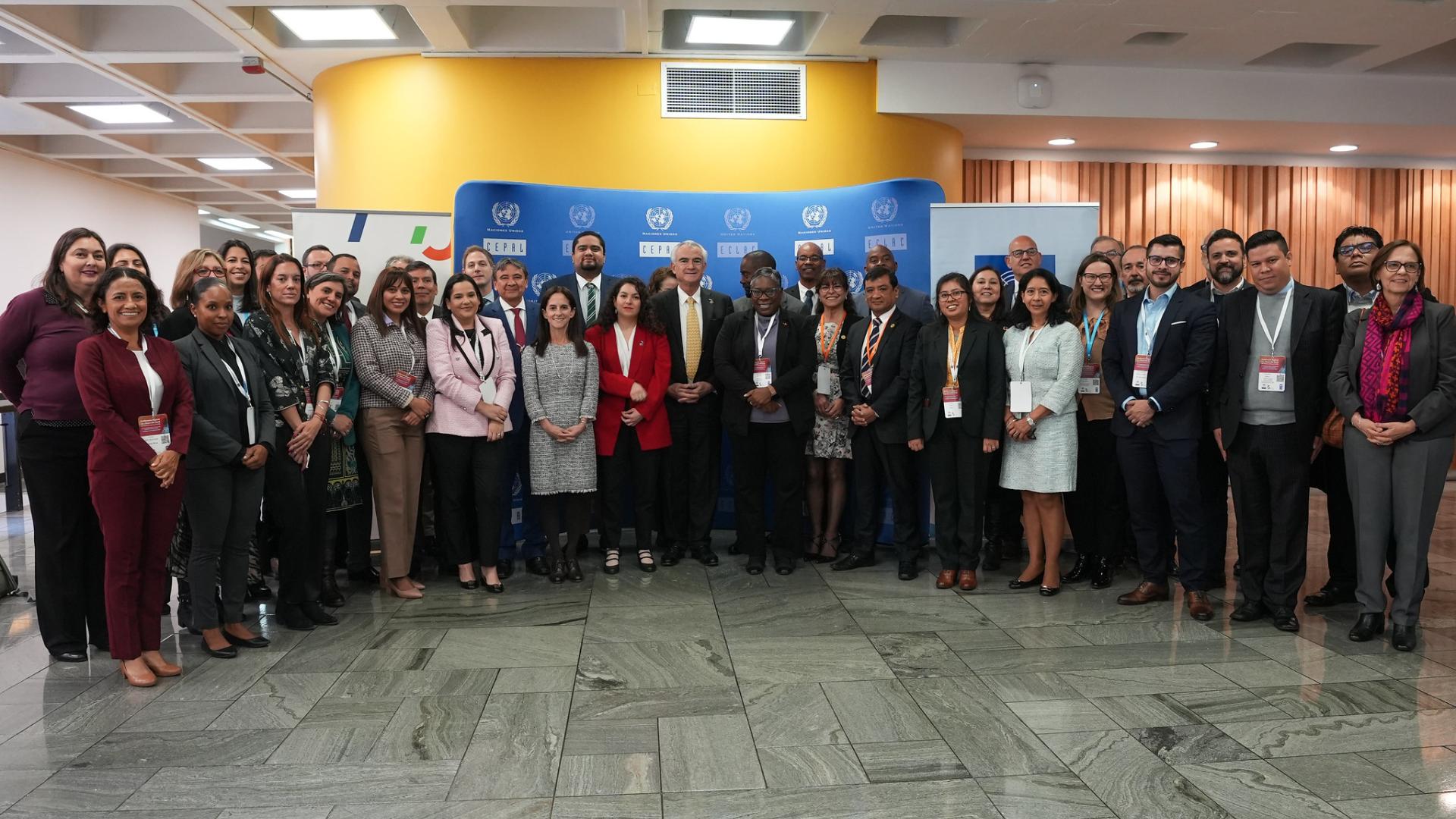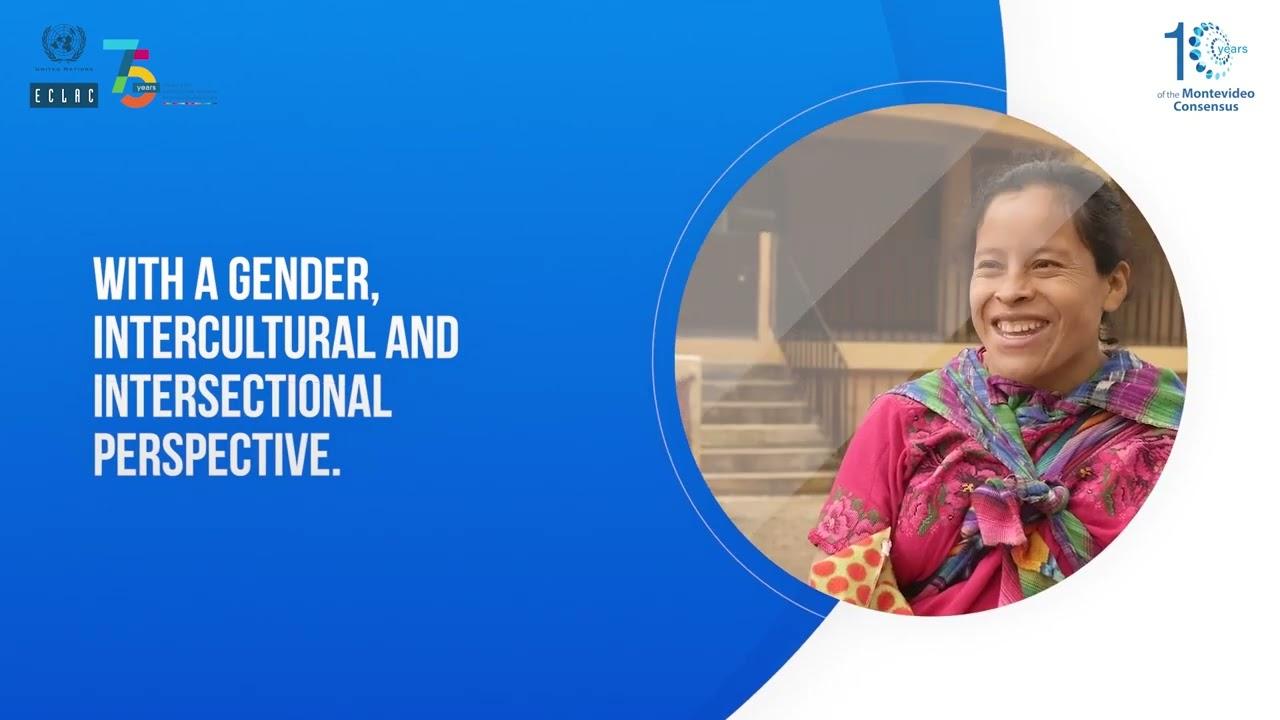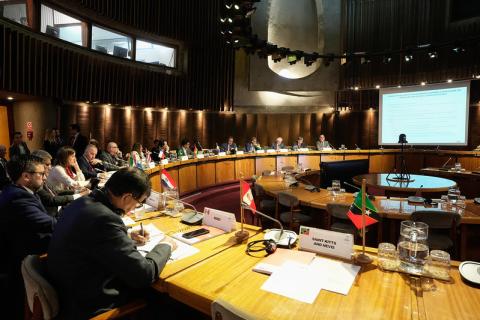Briefing note
The Economic Commission for Latin America and the Caribbean (ECLAC) highlighted today the importance of the region having an industrial policy that incorporates innovation, technical progress, equality and sustainability as drivers of economic growth, to be able to overcome the current crisis stemming from the COVID-19 pandemic and build back better, during a high-level virtual seminar organized by the United Nations Industrial Development Organization (UNIDO).
The international webinar on “Industrial policy and the road to recovery” was commenced by the Director General of UNIDO, LI Yong, and featured the participation of ECLAC’s Deputy Executive Secretary, Mario Cimoli, on behalf of the United Nations regional commission’s Executive Secretary, Alicia Bárcena; the Professor in the Economics of Innovation and Public Value, and Founding Director of the Institute for Innovation and Public Purpose (IIPP) of University College London (UCL), Mariana Mazzucato; and the Professor and Dean of the Institute of New Structural Economics of Peking University, Justin Yifu Lin.
In his presentation, ECLAC’s Deputy Executive Secretary, Mario Cimoli, indicated that for a long time industrial policy was not talked about in Latin America, but now with the pandemic many people are accepting that industrial policy, along with fiscal policy, are two areas that must be present in economic policy debates.
He also emphasized that growth alone will not enable economies to recover. “As we indicated in our last position document (presented during the recent thirty-eighth session of ECLAC), industrial policy is important. We need more than growth. The quality of growth is important and it is not enough on its own. Redistribution is necessary because inequality is inefficient. Equality is a prerequisite for growth and industrial policy,” he stated.
Cimoli added that authentic competitiveness (structural change), technical progress and decarbonization are three critical pillars for achieving sustainable growth in Latin America and the Caribbean, and that the developing world needs a debate on the structure of the economy, markets and technology, since structural interdependencies, the direction of growth and change, technological tensions, and sectors all matter.
In this sense, he indicated that ECLAC’s proposal includes the development of strategic sectors that would promote technical change, generate employment and reduce the environmental footprint, such as the transformation of the energy matrix based on renewable sources, sustainable urban mobility, the digital revolution, the health-care manufacturing industry, the bioeconomy, the circular economy and sustainable tourism.
“Today it is clearer than ever that industrial policy is necessary, it is here to stay. But we must take a very realistic approach: this is a matter involving the political economy, transformation, microeconomics, dialogue with the public sector and choosing new sectors. As a precondition, we must reduce inequality. If we do not do so, it will be very difficult to achieve our goal,” Cimoli explained.
Finally, ECLAC’s Deputy Executive Secretary asked those attending whether it is possible to develop industrial policy and the economy in general without significant cooperation between developed and developing economies. “If we do not have that, it will not be possible,” he said. “For example, we need to further open up intellectual property rights and markets for trade. The world is very asymmetrical. If we do not have more cooperation, developing economies will not be able to bear the cost of more sustainable growth. This is not a problem affecting a single country; we need more multilateral action, more ‘new’ cooperation, more comparative analysis to create new institutions,” he sustained.



